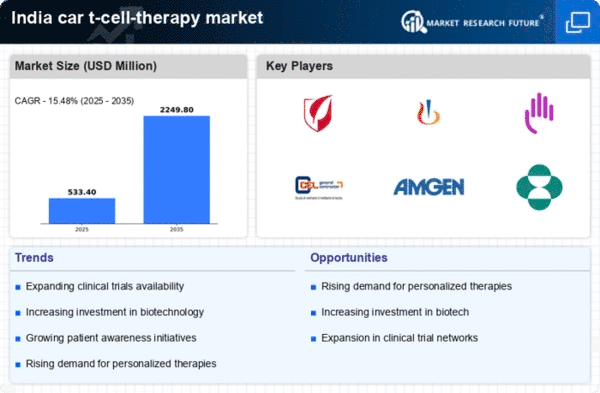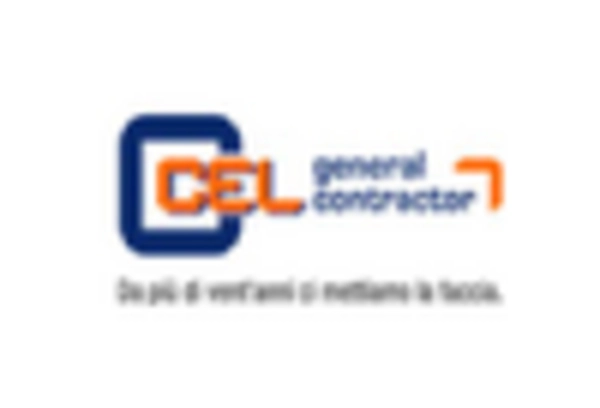Supportive Regulatory Environment
The regulatory environment in India is increasingly supportive of innovative therapies, including CAR T-cell therapy. The Central Drugs Standard Control Organization (CDSCO) has streamlined the approval process for advanced therapies, which is likely to encourage more companies to invest in CAR T-cell products. Recent initiatives have reduced the time for clinical trial approvals by approximately 30%, facilitating faster access to new treatments for patients. This supportive regulatory framework is expected to foster innovation and growth within the car t-cell-therapy market, as more therapies gain approval and enter the market, ultimately benefiting patients in need of advanced cancer treatments.
Growing Awareness and Patient Advocacy
Awareness of CAR T-cell therapy is increasing among patients and healthcare professionals in India. Patient advocacy groups are playing a crucial role in educating the public about the benefits and availability of CAR T-cell therapies. This heightened awareness is likely to lead to increased demand for such treatments, thereby propelling the car t-cell-therapy market forward. Reports indicate that approximately 60% of oncologists in India are now familiar with CAR T-cell therapy, compared to just 30% a few years ago. As more patients become informed about their treatment options, the market is expected to witness a significant uptick in the number of patients seeking CAR T-cell therapy.
Rising Incidence of Hematological Malignancies
The rising incidence of hematological malignancies in India is a significant driver for the car t-cell-therapy market. With an estimated 200,000 new cases of blood cancers reported annually, the demand for effective treatment options is on the rise. CAR T-cell therapy has shown promising results in treating conditions such as acute lymphoblastic leukemia and non-Hodgkin lymphoma, which are prevalent in the Indian population. As healthcare providers seek to offer more effective therapies, the car t-cell-therapy market is likely to expand to meet this growing need. The potential for CAR T-cell therapy to provide long-term remission in patients is further fueling interest in this innovative treatment.
Increasing Investment in Healthcare Infrastructure
The car t-cell-therapy market in India is seeing increased investment to enhance healthcare infrastructure. Government initiatives and private sector funding are contributing to the establishment of advanced treatment facilities. For instance, the Indian government has allocated approximately $1.5 billion to improve cancer care services, which includes the integration of innovative therapies like CAR T-cell therapy. This investment is likely to facilitate better access to cutting-edge treatments. Furthermore, the establishment of specialized centers for CAR T-cell therapy is expected to enhance patient outcomes and increase the overall adoption of this revolutionary treatment modality.
Technological Advancements in Treatment Modalities
The car t-cell-therapy market is being significantly influenced by rapid technological advancements in treatment modalities. Innovations in genetic engineering and cell processing techniques are enhancing the efficacy and safety of CAR T-cell therapies. For example, the introduction of automated cell processing systems has reduced the time required for manufacturing CAR T-cells, making treatments more accessible. Additionally, the cost of CAR T-cell therapy is projected to decrease by approximately 20% over the next few years due to these advancements. Such technological progress is likely to attract more healthcare providers to adopt CAR T-cell therapies, thereby expanding the market.
















